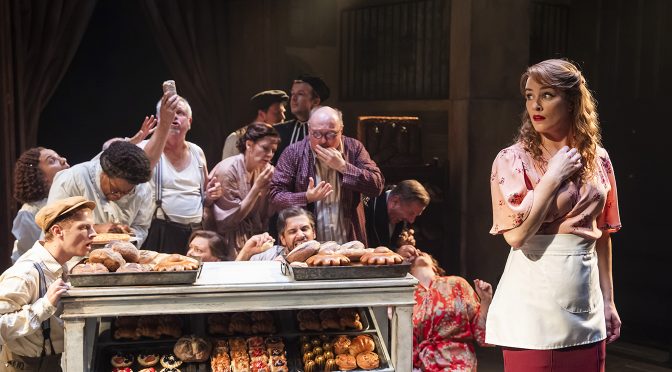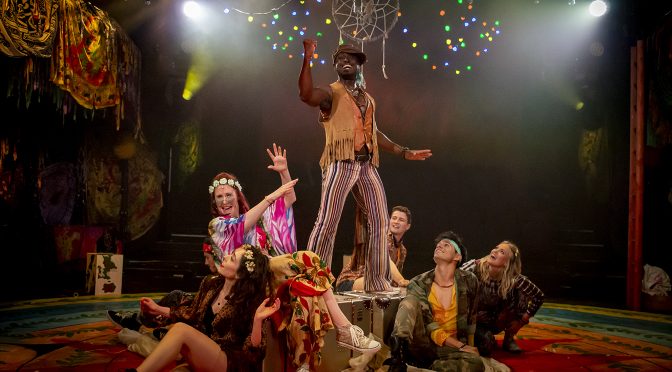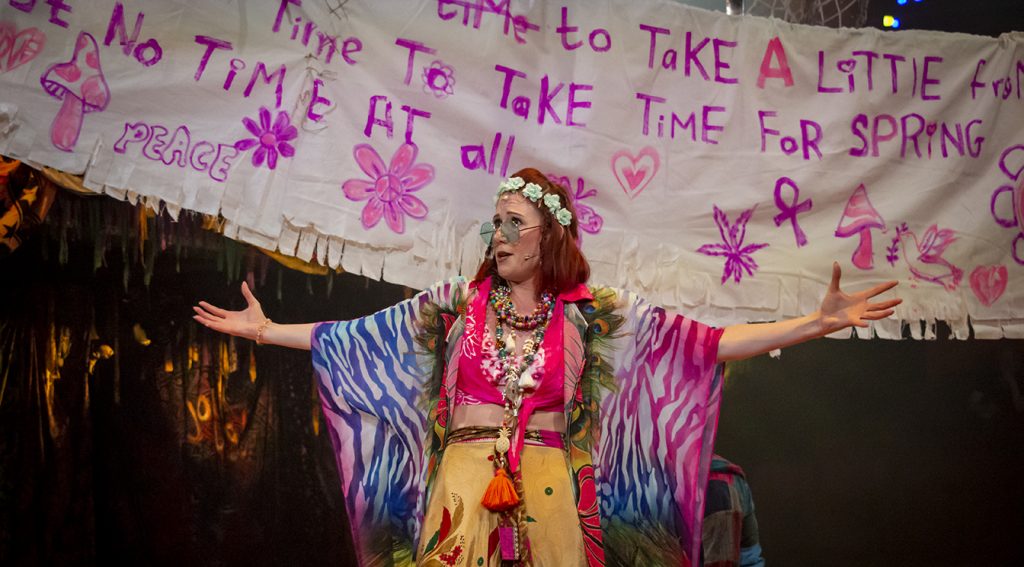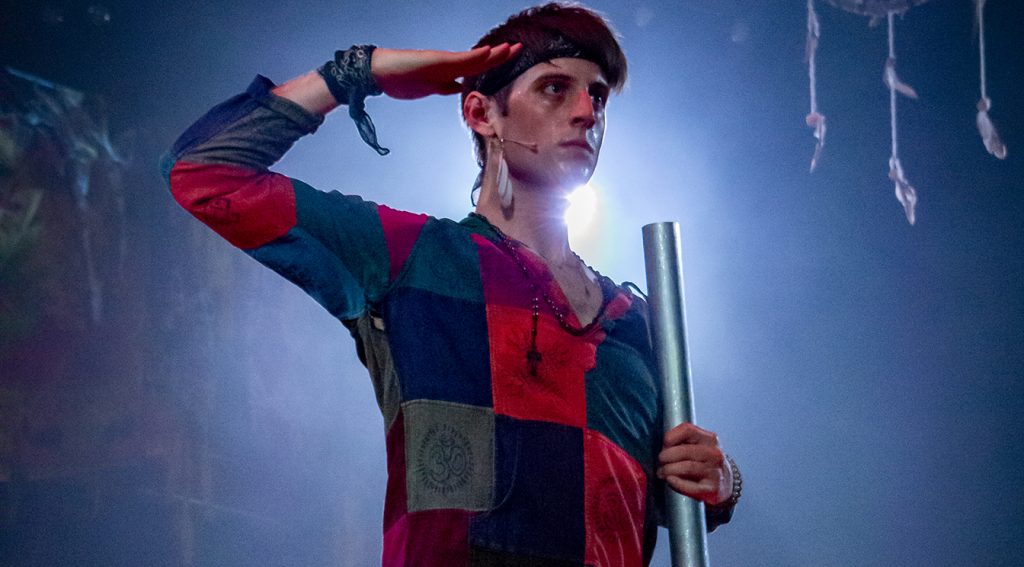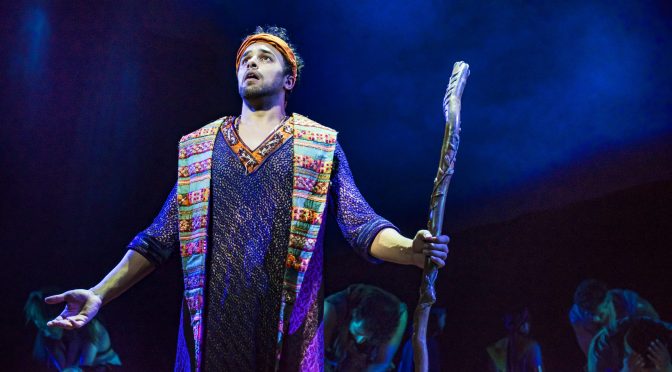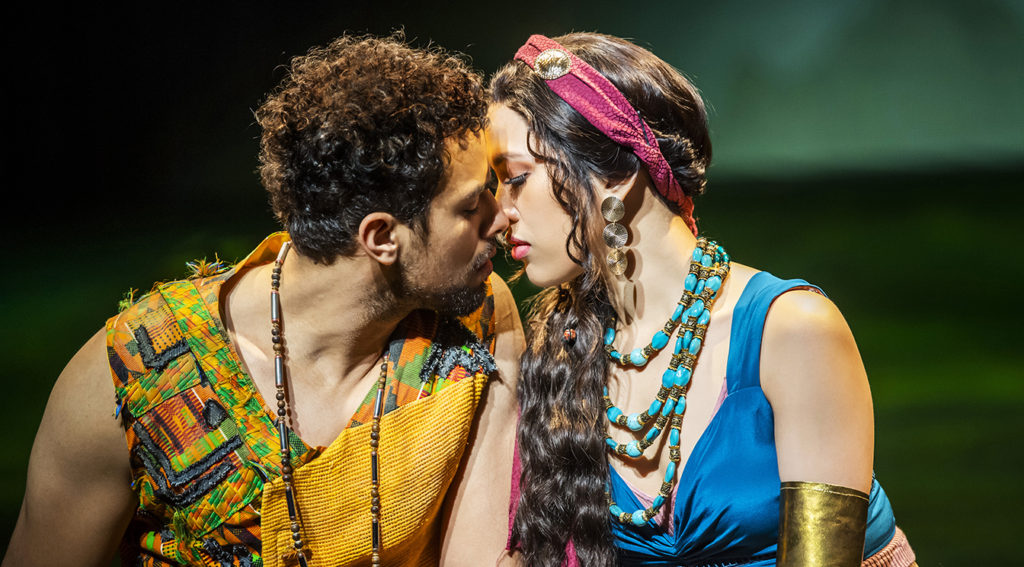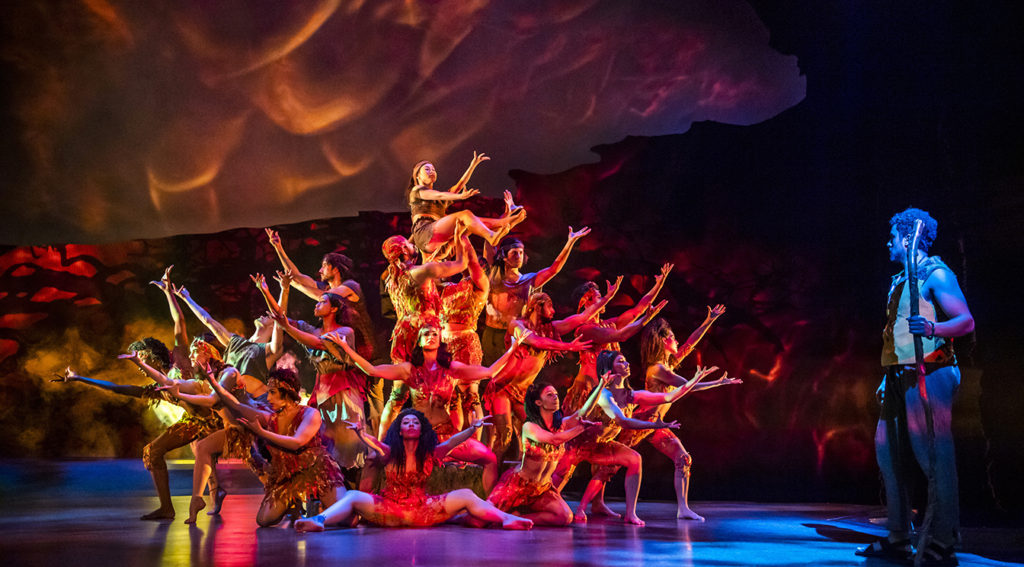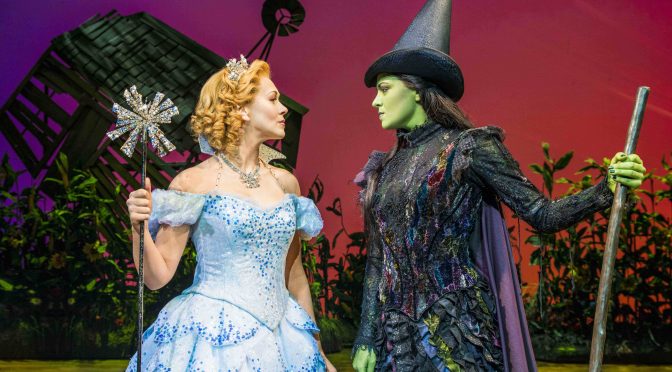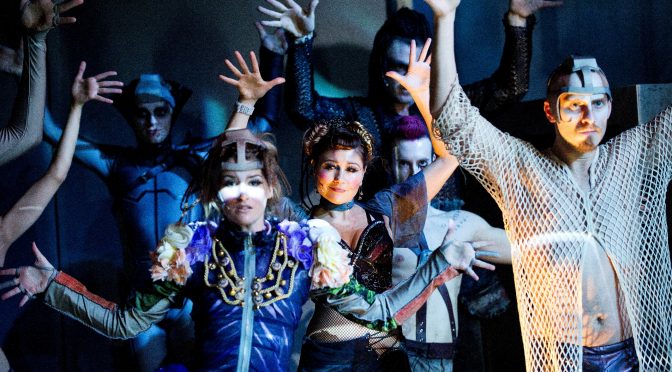Merci beaucoup to David Babani’s venue and director Gordon Greenberg for staging this musical theatre curio from the legendary Stephen Schwartz.
The Baker’s Wife is a sweet show with good songs and a great sense of humour. Schwartz and the book’s writer Joseph Stein are Francophiles both. There’s a clear affection for the source material – La Femme du boulanger by Marcel Pagnol and Jean Giono – that adds a warmth. And it is hard to imagine a better production for what is a deceptively complicated work.
The appeal is clear and the show unusual for Schwartz in being, very self-consciously, a chamber piece. There is an interesting tension between proclamations about small sensual moments said to encompass all our lives. And they really do mean everyone. The intimate Menier, with a superb set from Paul Farnsworth, reflects this ambition. The location might be a small village, upset by a new baker and his much younger wife arriving, but we see a lot of the locale and the cast numbers 19. It’s to Greenberg’s credit that not too many of the characters get lost.
There are serious intentions. Genevieve, the wife in question, runs off with a younger man, leaving her devoted spouse, Aimable, devastated… and after such lovely songs, too. There are great numbers for both Lucie Jones and Clive Rowe, who take the roles, but their rather pat dilemma is not helped by the rogue she runs off with being a weak character (Joaquin Pedro Valdes, who sings wonderfully, is distinctly short changed). There’s a lot of sentiment, arguably an excess of slow numbers, and surely too many sincere looks with clasping hands between the cast. The lyrics are great, though perhaps a touch repetitious.
Lighter moments are better – and these aren’t just comedic. There’s a powerful thread of nostalgia and melancholy to the piece, exemplified by a fine performance from café owner Denise, played by the always excellent Josefina Gabrielle, that is surprisingly airy. And the show is funny. The triumvirate of teacher, curate and mayor make great roles for Mark Extance, Matthew Seadon-Young and Michael Matus, who are all superb. There’s fun, too, for Norman Pace and Liam Tamne, playing old rivals who become friends. And a highlight is a song called ‘Bread’, which is rather brilliant.
It’s a lot, though, and, despite admirable efforts from Rowe in particular, The Baker’s Wife doesn’t quite come together. For a start, the story has too easy a solution. While an effort is made with the women in the show, including the mayor’s three “nieces” (one of whom he, ahem, offers to the baker to cheer him up) their group number, entitled ‘Romance’, feels forced and none of the female characters as vivid. Since the aim is to show us a whole community, that’s a big fault. For all the strong songs – very well performed – there isn’t enough to take away. Sketchy rather than slim, there are laughs and plenty of heart-felt moments, but the pleasure is from a fine production of a show seldom seen.
Until 14 September 2024
www.menierchocolatefactory.com
Photos by Tristram Kenton

